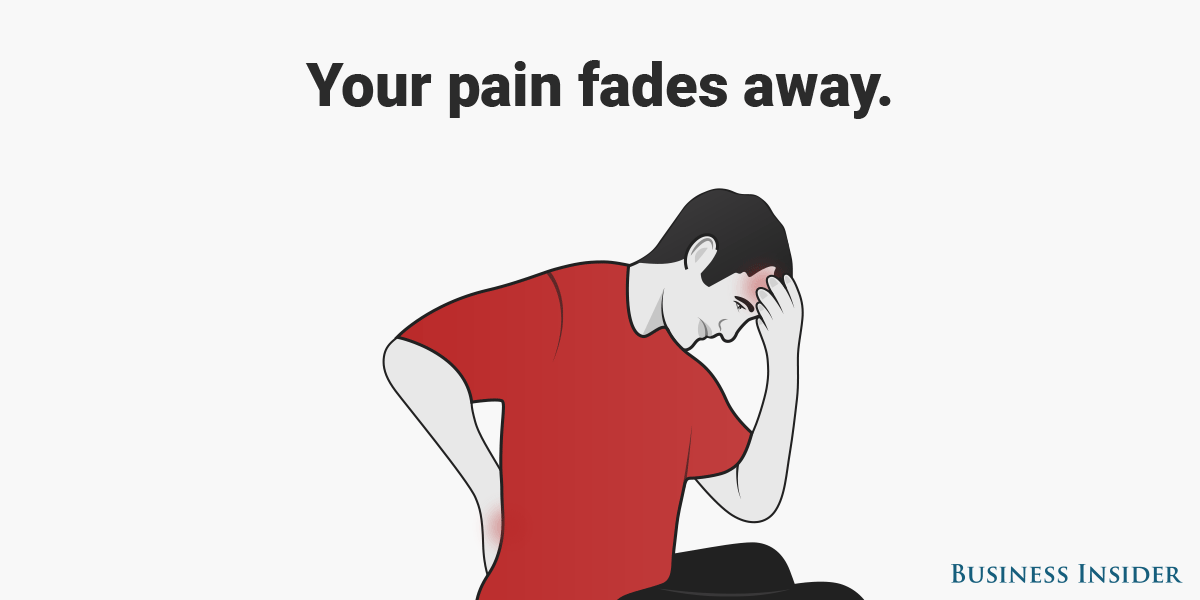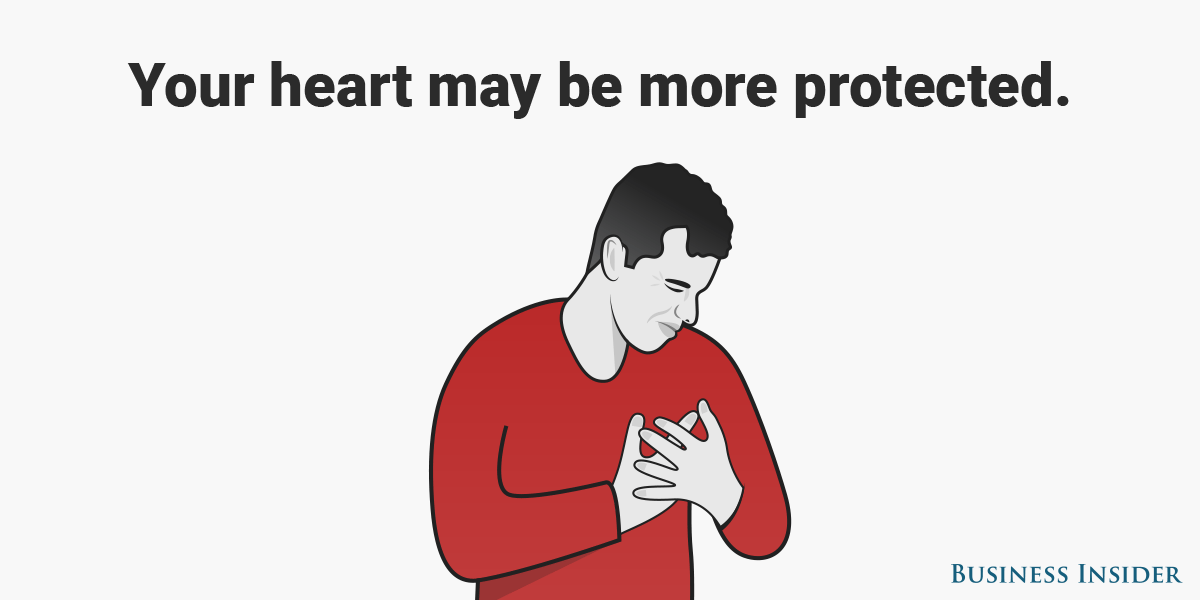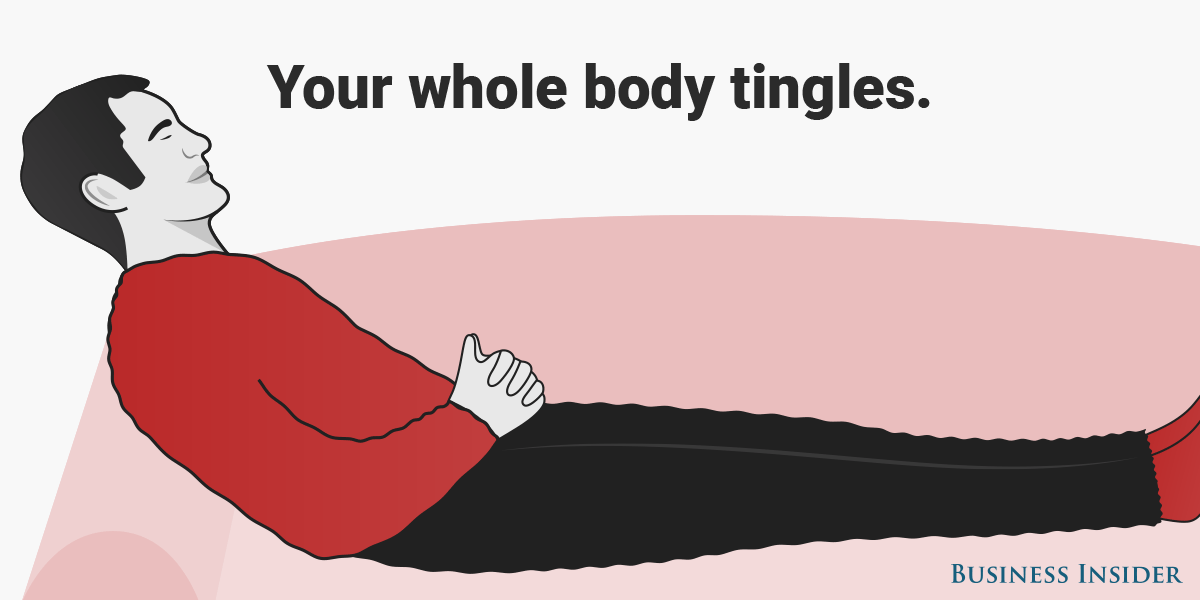 Skye Gould/Business Insider
Skye Gould/Business Insider
Love may not be a drug, but it can certainly feel like one.
Take a look at how love affects our brains and bodies:
Being swept up in the initial stages of a loving relationship can make you feel euphoric, and there's good reason for it. Research has shown a link between strong feelings of love and increased levels of the neurotransmitter dopamine in the brain, which tells us rewards are ahead. The same chemical gets released in response to other sources of pleasure too, which explains the "high" feeling new lovers often experience.
Pairs of unacquainted, opposite-sex undergrads spent two minutes at each of the following tasks for a recent study: 1. Gazing at their partner's eyes, 2. Gazing at their partner's hands 3. Counting how many times their partner blinked. When both pairs locked eyes, they were far more likely to report feelings of affection than when they were doing any other task.
The quick release of adrenaline we experience when we see the object of our affection can also make us blush. This hormone can make our blood vessels dilate, improving the flow of blood and oxygen throughout the body but also (unfortunately) turning our faces a telltale pink.
Married people who took part in one large study were significantly less likely than singles to have heart attacks, regardless of their age. Love alone, of course, may not have been the protective variable at work here: Married people are also significantly less likely than singles to smoke, and perhaps less likely to engage in other unhealthy habits as well.
Feelings of lust flood our bodies with the hormones adrenaline and norepinephrine, which can make our hearts race, our palms sweat, and our heads spin. A recent study lends some practical credence to this — when more than 700 people were asked to color in the parts of a body where they felt activity when they saw images and words linked with love, most people colored the entire body, especially the chest, stomach, and head.






No comments:
Post a Comment